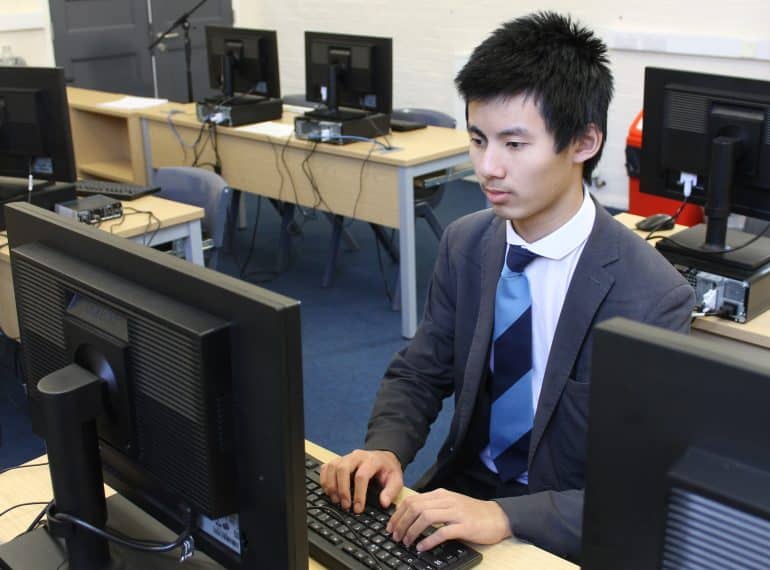
Sixth-former James Tan is believed to be the first QE boy ever to reach the final of the country’s premier coding competition.
James, of Year 12, made it through to the 2020 final of the British Informatics Olympiad after scoring highly in the first round of the annual competition, which was a three-hour examination sat in school.
The residential final had been due to take place at Cambridge University’s Trinity College, but was switched to an online event because of the Covid-19 restrictions. The results have not yet been announced.
Headmaster Neil Enright said: “My congratulations to James on making QE history by getting through to the final. It is not only in this competition that he is making his mark with his programming skills: he is also the programmer for our highly successful HYBRID VEX EDR robotics team and is teaching coding to primary school children as part of our Year 12 volunteering programme.”
James first developed his interest in coding by building websites in his spare time. He then learned the Python language, which, he says “opened up a whole new realm of possibilities”. He has taken part in a number of programming competitions, including the online Google Code Jam.
“I enjoy the puzzle-like aspect of coding, where each small section of code fits together to solve a much large problem. There is also a great sense of satisfaction when I find a particularly elegant solution, especially after spending a significant period of time on a programming project.”
James’s weekly volunteering work involves teaching Scratch (a block-based programming language) to primary school children in Years 3 and 4.
He found the first stage of the British Informatics Olympiad challenging but enjoyable, and professed himself very pleased with his score of 79 out of 100. “My preparation mostly consisted of trying to solve past questions in my spare time, which proved to be sufficient, given my prior experience with competitive programming in online contests.”
In the five-hour online final, contestants had to tackle four problems, based around scenarios involving settings such as a training ground for spies and a film studio. Each problem required a complete program as a solution. “In the end, I managed to solve two of the four, which I am quite pleased with,” said James.
In previous years, following the national final, the best four competitors were selected to represent Britain in the International Olympiad in Informatics (IOI).
This year, however, the IOI has also been postponed, so the British Informatics Olympiad organisers are planning to run some further selection activity over the coming months, the details of which have not yet been disclosed.
